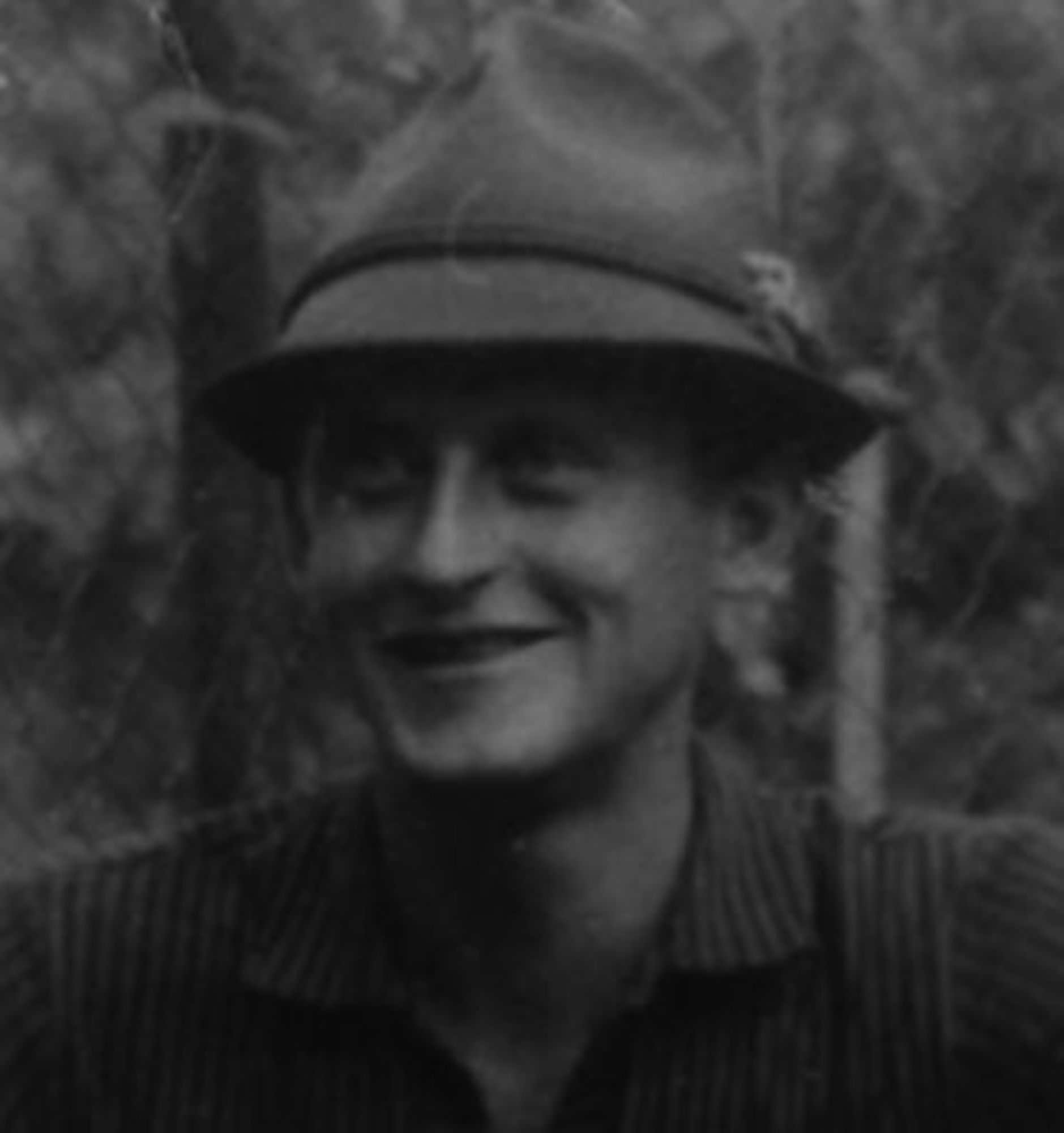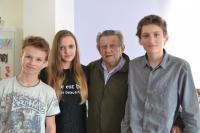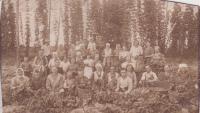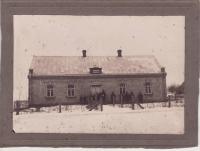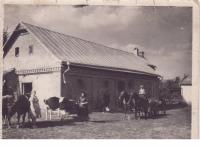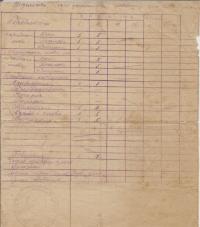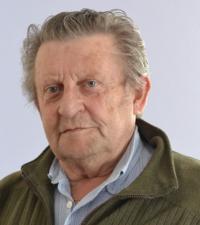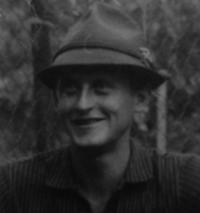As part of the Stories of Our Neighbours project, our research team from Libina Primary School met with Volhynian-born Jiří Zahradník. As a boy he had witnessed the wartime years in his old homeland, now part of Ukraine. His whole family was impacted by the Communist coup. We talked with him about his life. “My childhood was nothing great because I was born into the wartime years. When I was about four or five years old, the front passed through us, when the Germans advanced against the Russians. Hardly a year or a year and a half had passed and they were back again. That means the front passed through twice. So the people who lived there basically suffered in real poverty for two and a half years.” The following events led the whole family to immigrate to Czechoslovakia, the land of their forefathers. They settled down in a farm left destitute by Germans deported from the border region, specifically, in Libina. “We didn’t have to leave, but the conditions afterwards, because when the war was over, they, when the Russians chased the Germans, they chased them off, and they took us under their own government. Well, and they set up these so-called kolkhozes. That meant that they took everything people had, whatever there was here, it all had to go to the kolkhoz.” But a similar fate awaited them in Libina as well. “Our family had over twenty hectares, and another son had twenty, and another son had twenty, so all in all they tended to about eighty hectares. And suddenly they were made into hired labourers.” Despite all the limitations that affected the sons of landowners, the witness succeeded in completing a secondary veterinary school. But he was not yet allowed to continue his studies at university. First he had to undertake mandatory military service. “In my days military service was for two years. And it wasn’t a walk through the park either, but those young boys deserved it. Everyone who did his service grew from whatever mummy’s boy he was into a bit of a man. They taught you order there. You got up at six, bare-topped regardless of the weather, out and about, exercise time. Well, and then there was the so-called drill, the way it worked, say, I served in the Thirteenth Reconnaissance Battalion, I can say that now, it’s many years ago. So we had our own special house with a flat roof, two stories. One non-com stood up at the top, another down in the yard. We stood at the bottom. The one at the top barked: ‘Platoon, at my command, two ranks, fall in!’ And we headed upstairs to re-form. When we gathered our breath a bit, tongues lolling, the one downstairs said: ‘Platoon, at my command, two ranks, fall in!’ And so we went up and down the stairs for half an hour or so.” By some chance coincidences the witness was fortunate enough to finally graduate from the University of Veterinary Sciences. He spent his life doing the job he had always wanted to. He also managed to maintain a positive approach to life. “Well, not to be afraid of life. But to take it seriously and live it honestly. And live it honestly. And it’s worth it. At least, it was for me.”
